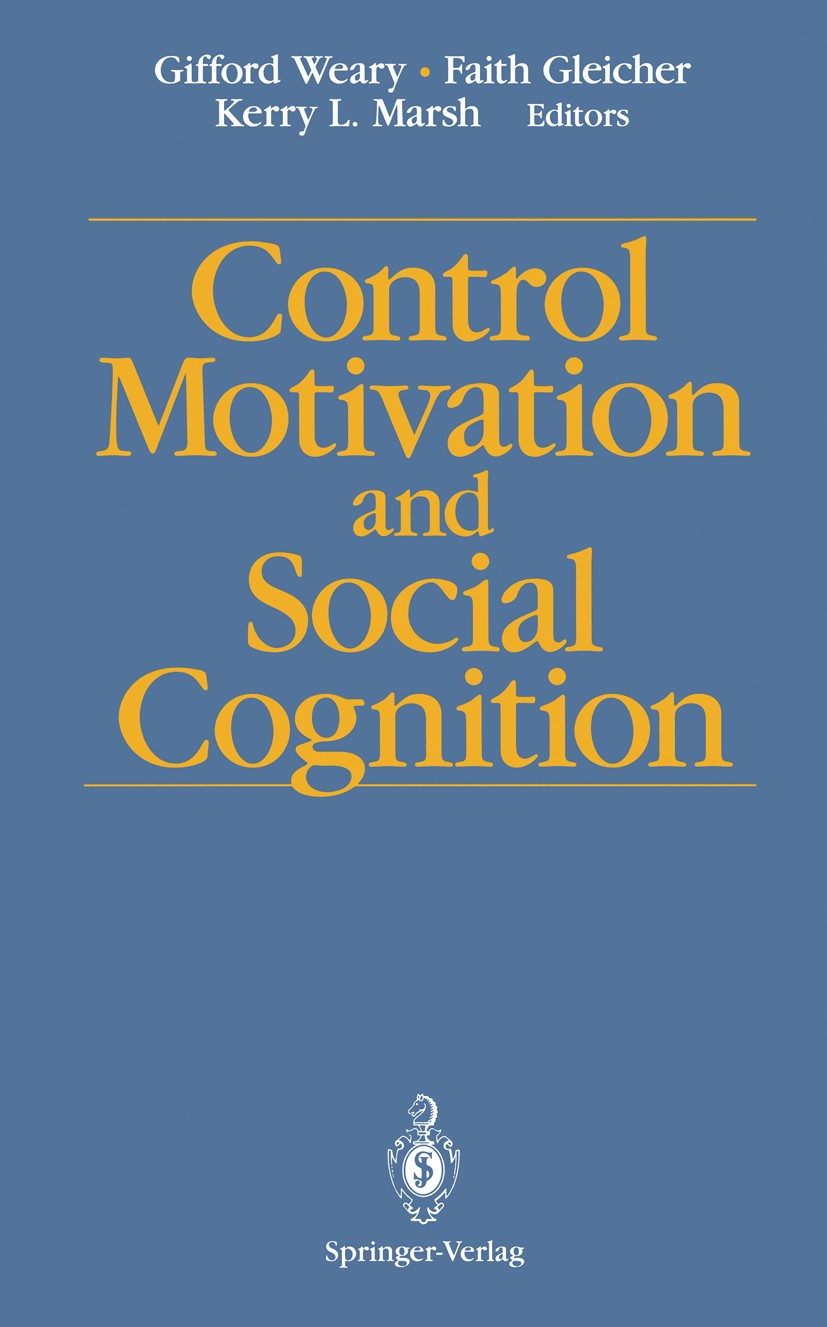| 書目名稱 | Control Motivation and Social Cognition | | 編輯 | Gifford Weary,Faith Gleicher,Kerry L. Marsh | | 視頻video | http://file.papertrans.cn/238/237252/237252.mp4 | | 圖書封面 |  | | 描述 | Over the past two decades theorists and researchers have given increasing attention to the effects, both beneficial and harmful, of various control- related motivations and beliefs. People‘s notions of how much personal control they have or desire to have over important events in their lives have been used to explain a host of performance and adaptational outcomes, including motivational and performance deficits associated with learned helplessness (Abramson, Seligman, & Teasdale, 1978) and depression (Abramson, Metalsky, & Alloy, 1989), adaptation to aging (Baltes & Baltes, 1986; Rodin, 1986), cardiovascular disease (Matthews, 1982), cancer (Sklar & Anisman, 1979), increased reports of physical symptoms (Pennebaker, 1982), enhanced learning (Savage, Perlmutter, & Monty, 1979), achievement-related behaviors (Dweck & Licht, 1980; Ryckman, 1979), and post abortion adjustment (Mueller & Major, 1989). The notion that control motivation plays a fundamental role in a variety of basic, social psychological processes also has a long historical tradition. A number of theorists (Heider, 1958; Jones & Davis, 1965; Kelley, 1967), for example, have suggested that causal inferences arise from a | | 出版日期 | Book 1993 | | 關(guān)鍵詞 | Depression; Kognition; Motivation; Sozialpsychologie; anatomy; attribution; cognition; perception; personali | | 版次 | 1 | | doi | https://doi.org/10.1007/978-1-4613-8309-3 | | isbn_softcover | 978-1-4613-8311-6 | | isbn_ebook | 978-1-4613-8309-3 | | copyright | Springer-Verlag New York, Inc. 1993 |
The information of publication is updating

|
|
 |Archiver|手機版|小黑屋|
派博傳思國際
( 京公網(wǎng)安備110108008328)
GMT+8, 2025-10-8 02:05
|Archiver|手機版|小黑屋|
派博傳思國際
( 京公網(wǎng)安備110108008328)
GMT+8, 2025-10-8 02:05


